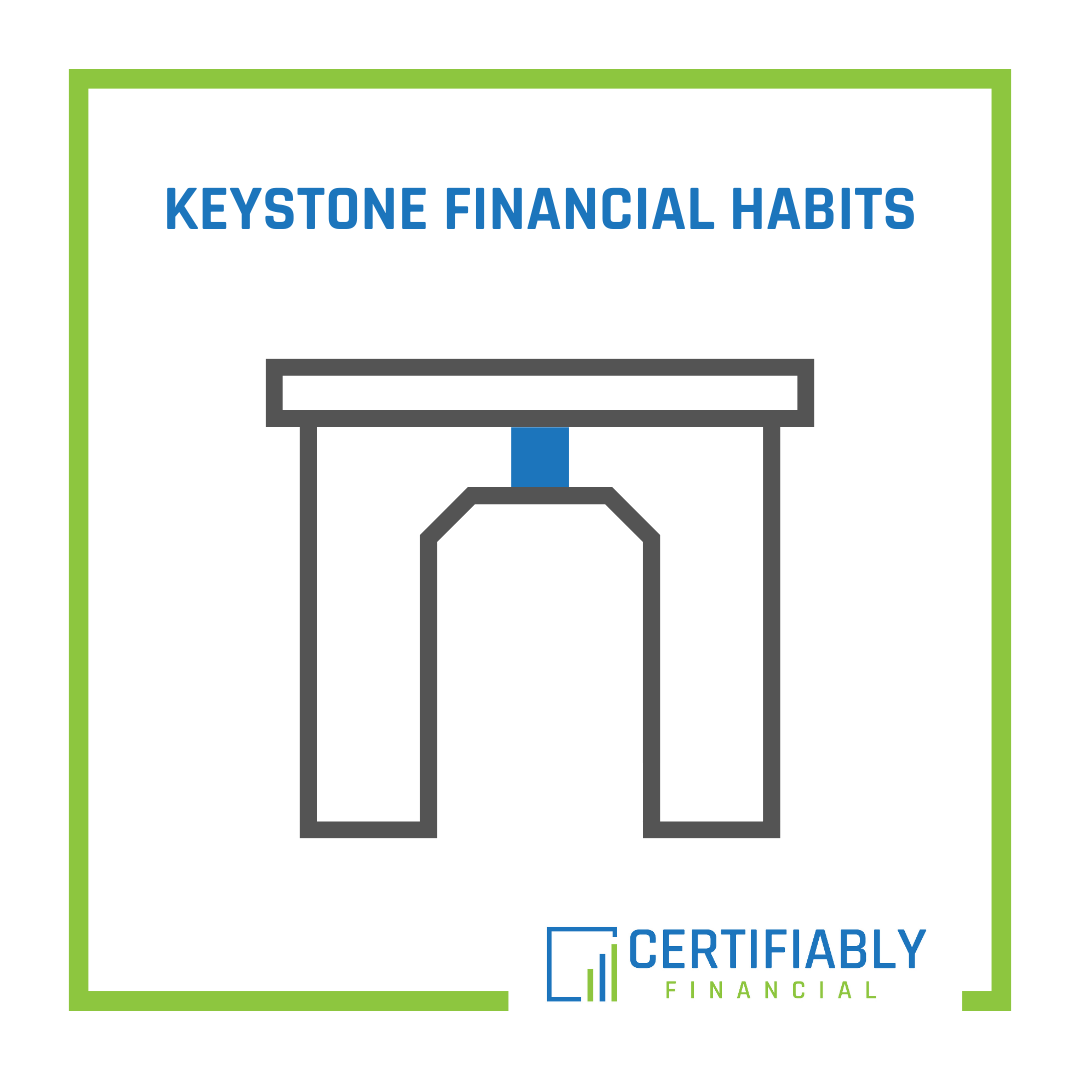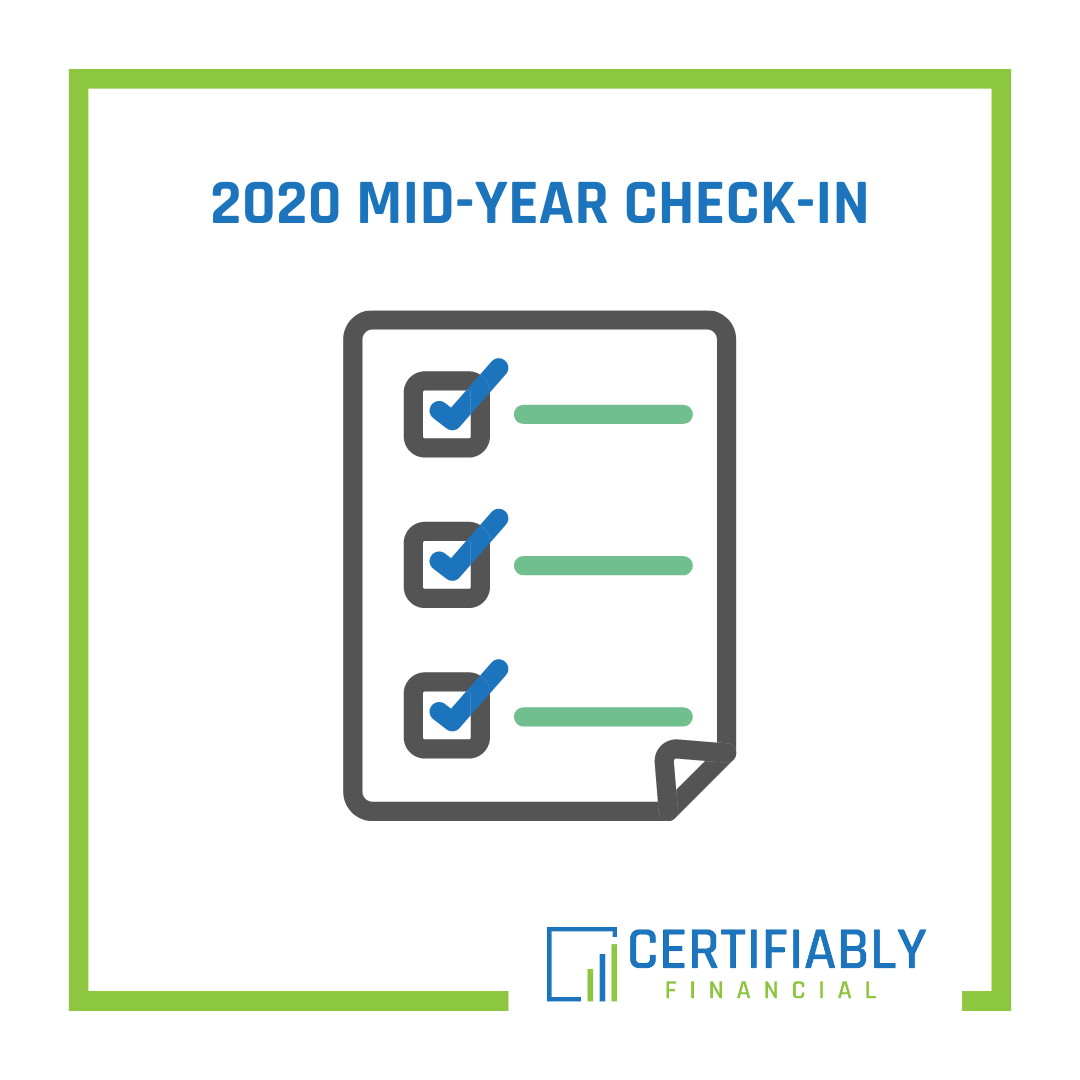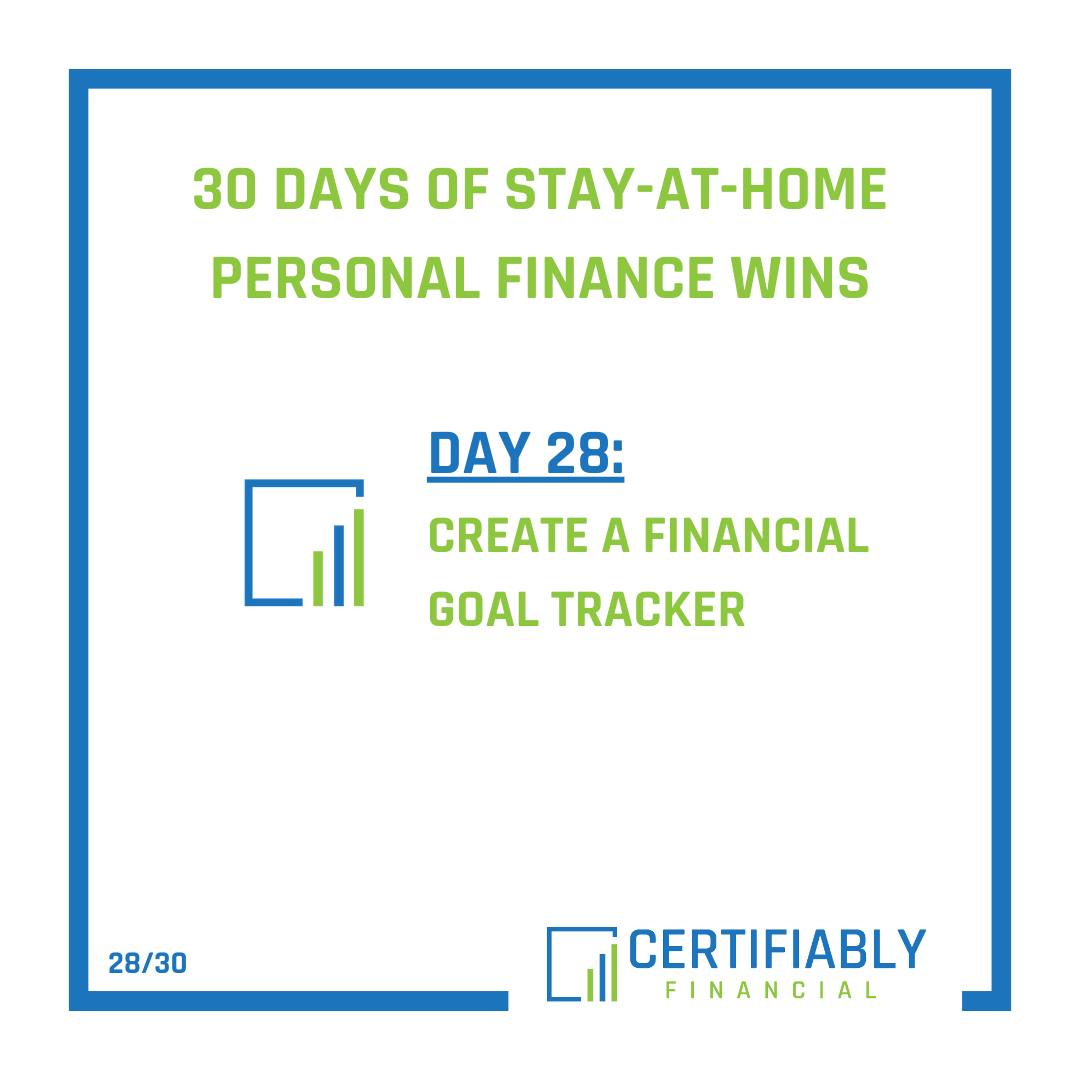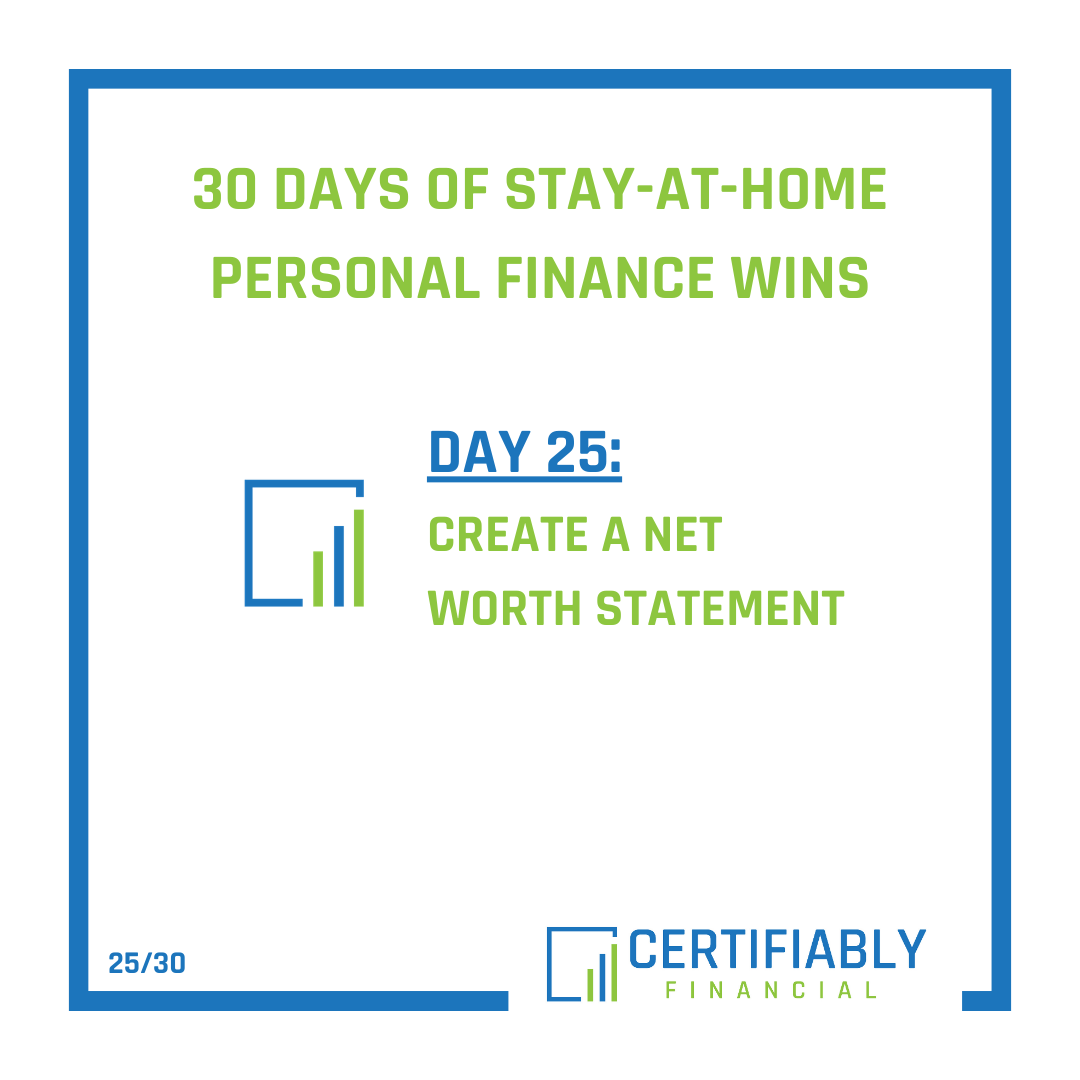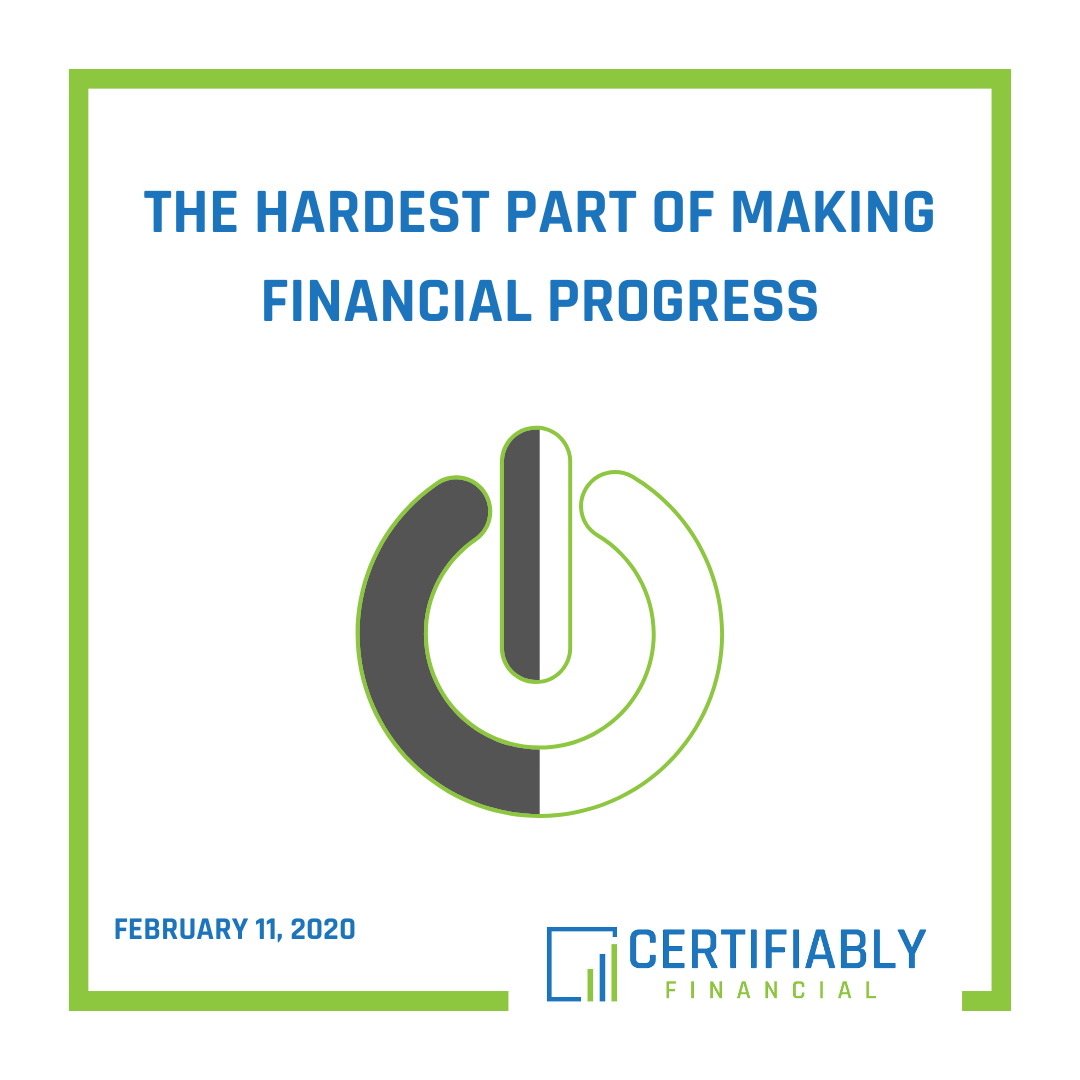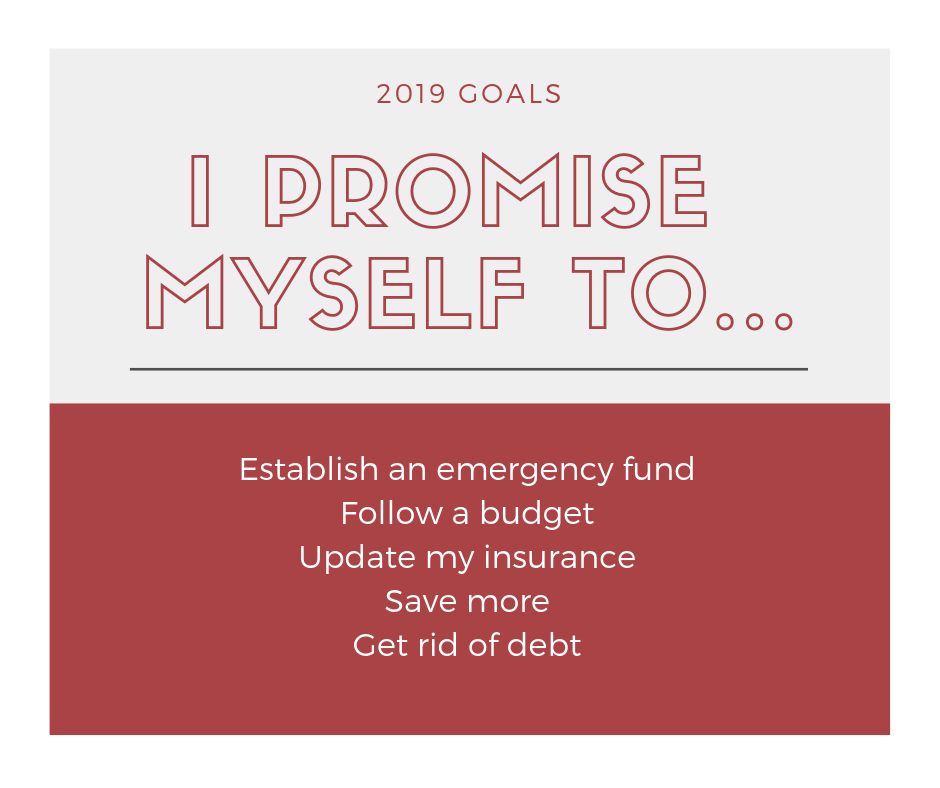At the end of each month on my podcast (Circle City Success), my co-host Jason and I recap the episodes for the month and speak about some of the common themes and things that we learned. Last month, we had a special guest host (and former podcast guest) do the recap with us, which was really fun. As I was thinking about the recap, and the theme that we heard of intentionality, it made me think of a question that people should be asking themselves more often: Are you intentional with your money?
Goals
5 Questions to Help You Determine Your Financial Goals
What are your goals? This is a question that you’ll inevitably be asked in one way or another if you begin working with a financial planner. I work with a lot of clients who are in their 30s and 40s and it seems to be a difficult question to answer for most of them. Clients often tell me that they’re not sure what their goals are (or what they should be) and they’re looking for help in defining them.
Keystone Financial Habits
The beginning of the year is one of the main times when people are motivated and looking to create new positive financial habits that will lead to a better financial life. If there were only a handful of financial habits for you to focus on developing this year, what would they be? What are those few things that you should focus your time on?
2020 Mid-Year Check-In
We’re halfway through a crazy year. In normal times, it’s easy to get caught up in the day-to-day of life and not pay attention to your personal finances. It’s been much easier to do that this year with everything that we’ve been facing. Ideally, you’ve been monitoring and tracking your progress towards your financial goals on a consistent basis throughout the year. If you have, then this may be a good time to take a step back and look at the bigger picture. If you haven’t then this is a great opportunity to start.
Day 28 Of 30 Days Of Stay-At-Home Personal Finance Wins: Create A Financial Goal Tracker
What if you were able to come out of this time of social distancing and economic crisis with a stronger and healthier financial life? What if you looked at this as an opportunity to take a little bit of your extra time each day to work on your finances?
Day 27 Of 30 Days Of Stay-At-Home Personal Finance Wins: Write Down Your Financial Goals
What if you were able to come out of this time of social distancing and economic crisis with a stronger and healthier financial life? What if you looked at this as an opportunity to take a little bit of your extra time each day to work on your finances?
Day 25 Of 30 Days Of Stay-At-Home Personal Finance Wins: Create a Net Worth Statement
What if you were able to come out of this time of social distancing and economic crisis with a stronger and healthier financial life? What if you looked at this as an opportunity to take a little bit of your extra time each day to work on your finances?
The Hardest Part Of Making Financial Progress
I get up at 4 AM three days per week and I don’t use the snooze button. I do have a trick though. I set an alarm 5 minutes before I want to get out of bed and then I actually do get out of bed once my “wake up” alarm goes off. (It’s not cheating.) Most people think I’m crazy for getting up so early and heading to the gym before work and they tell me how hard it is for them to get out of bed in the morning. My response, “The hardest part is making your feet hit the floor.”
Reflect & Start Fresh
4 minute read
Take Time To Reflect
First, take some time to reflect on 2018 including what went right, what went wrong, and what needs to be changed to make sure that you reach your 2019 goals. If you didn’t keep track of your personal finances in 2018, then this could end up being a time-consuming process. Don’t let that dissuade you from taking the time to complete it. Knowing what you did with your money last year, even at a high level, will help you make decisions about what you want to make sure that your money does for you in 2019.
Complete A Review Of Your Spending
As I mentioned above, if you didn’t track your spending in 2018, then you don’t need to go back and categorize every single thing that you spent money on. You can simply scan through your bank and/or credit card statements and make mental notes of where it seems like most of your spending went and where big purchases happened.
On the other hand, if you kept good records of where you spent your money, then you’ll be able to complete a much more in-depth and reflective dive of your spending habits.
Here are some questions to keep in mind as you evaluate where your money went in 2018:
- What did you spend your money on?
- Where did you spend your money?
- Are you surprised by anything?
- Did you spend your money on the things that make you the happiest?
- Did you spend more money on certain things than you wanted to or thought that you did?
- Do your 2018 spending habits reflect your values?
- What adjustments do you want/need to make in 2019?
Complete A Review Of Your Saving
Just as with the review of your spending above, you don’t have to go back and evaluate every single dollar that you saved in 2018 but it’s good to have at least a ballpark estimate of how much you saved. Not only do we need to save for retirement, but there are other goals to save for as well including things such as an emergency fund, a new home, a new vehicle, medical procedures/bills, children’s college education, etc.
Were you able to save as much as you wanted to? Knowing the percentage of your income that you saved is a better measure than the dollar amount (although it’s better if you know both).
The reason that it’s important to know where you spent your money and how much you saved last year is to make sure that it aligns with your values. If you have a dream of buying a home for your family in 2020 but you bought a brand new car in 2018 when the vehicle that you had still ran fine which means that you didn’t save anything for a down payment, then this goes to show that you didn’t always keep your money values and long-term goals in mind.
Knowing where you spend your money, and if it really aligns with your values, can show you if you have more room to save. You can use that information going forward to be more intentional with your money to help make sure that you reach your goals.
Create Processes
Create processes to make things easier on yourself and help make sure that you’re successful. It’s fine to create goals that you want to reach for the year, but without processes in place to reach those goals you’re probably not going to accomplish them.
Want to save 10% of your income in 2019? Setup automatic savings to help make sure that you reach that goal. You can setup payroll contributions to your 401(k) or other employer-provided retirement account as well as automatic contributions from your checking account to your savings account each time you’re paid. By automating your savings you’ll be “paying yourself first” and won’t be tempted to spend the money. You can do the same things by automating any debt payments and other bills that you have.
Want to travel more this year? Set a process goal of reviewing your spending and budget on a weekly basis to determine if you’re on track or if changes need to be made.
By reviewing your spending on a weekly basis you’ll be in-tune with where your money is going and you’ll be able to adjust on the fly. If you have a significant other or spouse, then set a specific time each week to sit down and reflect on your finances over the past week as well as discuss your finances for the week ahead.
Be Consistent
It may be cliché, but it’s cliché because it’s true: consistency is key. Don’t set your process goals and then let them fall to the wayside. You have to be diligent in going through your processes on a consistent basis (daily, weekly, monthly) to make sure that you reach your broader, long-term goals that your processes are in place to help you achieve.
Whether you reached all of your financial goals in 2018 or you didn’t reach any of them, a new year represents a fresh start. Reflect on last year’s financial situation and whether what happened accurately represents your values, your goals, and if it helped to properly prepare you for the future. Put processes in place to keep yourself accountable and track your progress and make sure that you remain consistent in following those processes through so that you’ll be successful in reaching your 2019 financial goals.
Generate Momentum
4 minute read
Just because New Year’s resolutions technically start January 1 doesn’t mean that you have to wait until then to begin making progress. If you’ve set a goal that you want to reach by December 31, 2019, then starting now towards reaching that goal can only mean that you’ll be more likely to reach it.
Reflect
Before you do all of that, take some time reflect on your 2018 goals. Have you reached them? Have you forgotten about them? Can you do something over the remainder of the year to make sure that you reach some of those goals?
If you identify actions that you can take to help you reach goals that you set for 2018, then take care of this while you identify smaller action items that can propel you into 2019.
Here are some examples of financial goals that you can set for yourself in 2019.
Establish an Emergency Fund
If you don’t have a properly funded emergency fund in place (at least 3-6 months of living expenses), then this is probably where you’re going to want to start. We all want to think that nothing bad is going to happen to us, but life is unpredictable which is what makes an emergency fund necessary.
Taking the time to establish an emergency fund before working on other goals is important because it can help to make sure that you don’t end up riding a wave of debt. Consider someone who doesn’t have an emergency fund in place. They get hurt in a freak accident and can’t work, or experience a disaster that ends up costing them $5,000.
They don’t have $5,000, so they charge it to a credit card. After a couple of years of hard work, they pay off the credit card. Then, another $5,000 disaster strikes, and they still don’t have an emergency fund in place to pay for it. Guess what happens?
The good thing is that you can start saving towards establishing a well-funded emergency fund now!
Set Cash Flow Goals & Create a Budget
Set savings and debt pay down goals and create a budget based around them rather than spending first and thinking about saving and paying off debt second.
Reaching your goals (if they’re lofty enough) will probably require some sacrifice, and potentially some lifestyle changes, but will be worth it in the end. Maybe you want to buy a house in 2019 or you want to max out your Roth IRA or you want to pay off high interest rate student loans. No matter what your goals are, set them now, figure out what your budget needs to look like to accomplish those goals, and start working towards them.
You’re not going to be perfect, and there will be some trial and error, but starting now rather than waiting until January 1 will help you get a head start.
It will be time consuming, but go back and track your expenses for the past couple of months. Make notes of where you spent more than you thought and where you can cut back in the new year. Your spending in November and December will probably be higher than usual considering holidays and potential travel, so these may not be the best months to use as a comparison and evaluation.
Decide What You’ll Do With Your Raise, Bonus, & Tax Return
If you’ll receive a raise, bonus, and/or tax return in 2019, take the time now to plan for what you’ll do with that money. How much of it will you spend? How much will you save? How much will you allow to contribute to lifestyle creep? How much will you use to pay down debt?
No matter what your goals are for the money, make a plan now so that when the time comes that the money hits your bank account, you’re not tempted to spend it on something that won’t help you reach your goals.
Maybe your goal is to buy a new car with the money. That’s fine, but don’t go out and buy a new wardrobe and new appliances if those aren’t the goals that you wrote down. Write down your goals and stick to them when the time comes to allocate your cash.
If you’ll receive a raise or bonus, then you should consider increasing your savings rate. You weren’t receiving the money before, so why not just go ahead and save at least part of it?
Evaluate Your Insurance
Do you have the proper insurance coverages in place? Take the time to figure out what types of policies you need and what the appropriate coverage is for each. This will be worth it when you have the right coverage in place if disaster strikes. Having to pay for a disaster without the proper insurance in place to help you can be financially devastating.
Quit Putting It Off…
Have you been neglecting getting your estate planning documents in place? Take some time now to reach out to an attorney to get the process started. You know it’s important. You know you need to do it. Check it off your list.
Generate Momentum
In the next 54 days left in 2018, take some time to think about what you can do right now to make things easier on yourself and help you reach your 2019 goals. Make money priorities and plan around them rather than letting life happen and hoping that you can somehow reach your goals. You’re in charge of your money, your money isn’t in charge of you.
Take action and do what you can now to not only reflect on your 2018 goals and try to finish accomplishing as many of them as possible, but also develop your 2019 goals and the processes that you need in place to reach them. Reflecting on what you’ve accomplished, continuing to tackle goals to end 2018, and beginning to work towards your 2019 goals now will give you momentum going into the new year to help you be successful.



